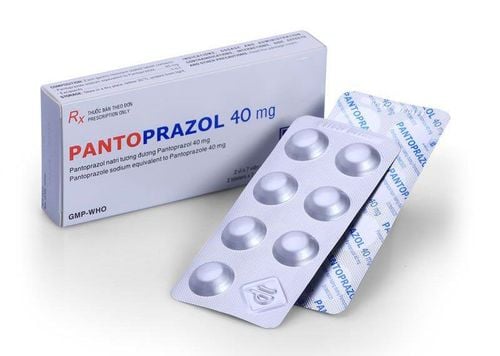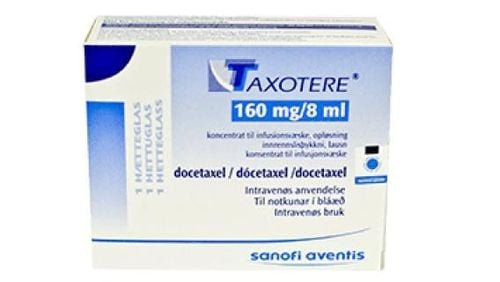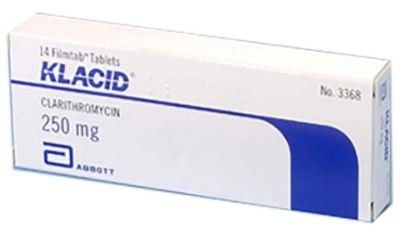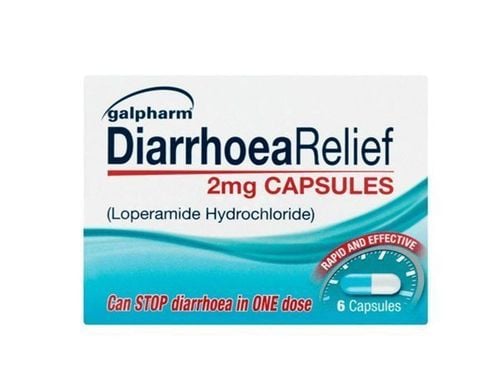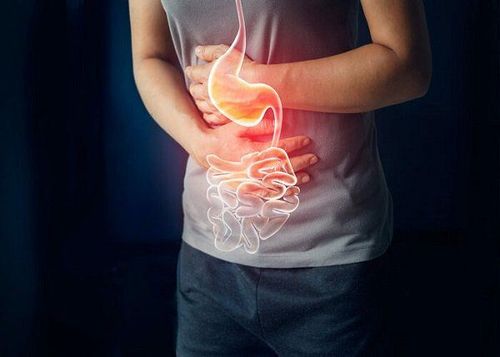This is an automatically translated article.
Article written by Master, Doctor Mai Vien Phuong- Gastrointestinal endoscopist - Department of Medical Examination & Internal Medicine - Vinmec Central Park International General Hospital
Gastroduodenal disease is receiving more and more attention, because it is a disease causing high mortality, especially gastritis caused by H.pylori. However, the disease will have a good prognosis if the patient is detected at an early stage and has effective monitoring and treatment measures. So how to prevent inflammation, peptic ulcer, stomach cancer caused by H. Pylori infection?
Infection with H. Pylori bacteria in East Asian countries is quite common, this is called precancerous stomach (cancer of the stomach), but only a certain percentage progress to stomach cancer. In Vietnam, studies on patients with chronic gastritis showed that the rate of gastric mucosal atrophy accounted for 68-88%, intestinal metaplasia about 12-29% and dysplasia about 3-11%. The annual rate of gastric cancer formation in people with gastric mucosal atrophy is only about 0.1%, intestinal metaplasia 0.25%, mild dysplasia 0.6% and severe dysplasia 6%.
1. How to prevent inflammation, peptic ulcer, stomach cancer caused by H.pylori infection?
Cancer remains the third leading cause of death in the world, after cardiovascular disease and infectious diseases. In 2002, according to the Global Cancer Organization, stomach cancer was the fourth most common cancer in the world, with more than 900,000 new cases and nearly two-thirds of cases occurring in developing countries. , poor sanitary conditions. However, unlike some other diseases, gastric cancer does not have a distinct geographical distribution. Indeed, countries with low rates (such as India) are also located in the region at highest risk (ie Asia). Similarly, in low-risk populations, there are also higher-risk subgroups (eg Koreans living in the US).
Since the discovery of H.pylori bacteria, in 1982, by two Australian scientists, Warren and Marshall (received the 2005 Nobel Prize in Medicine and Physiology), the important role has become increasingly recognized. of H.pylori causes inflammation, ulcers and possibly stomach cancer. In 1994, the World Health Organization (WHO) based on the epidemiological research evidence recognized H. pylori as an important cause, classified as group 1 causing gastric carcinoma. Currently, the world is focusing on research to find a vaccine to prevent H. pylori. There have been a few announcements at the European Gastroenterology Conference held in Austria, 2016, but still not really effective and convincing.

2. Gastric cancer development after eradication of Helicobacter pylori
There are some concepts that need to be understood: The intermediate stages of stomach cancer (also known as precancerous) include gastric mucosa atrophy (thinning of the lining), metaplasia, and metaplasia. enteric (cells in the gastric mucosa change morphology to resemble those in the small intestine and colon), paraplasia (cells in the gastric mucosa have undergone more significant structural changes in the direction of exiting the muscle) body control). Each of the above stages has different degrees of structural changes and has different levels of risk of developing gastric cancer.

Previously, it was believed that H.Pylori was the cause of stomach cancer, H.Pylori eradication treatment would prevent the risk of stomach cancer later. However, in the 2009 study by Fuccio L et al., 1.0% of the patients still developed gastric cancer despite successful H. pylori eradication therapy. Recently, it has been reported that the tumor may develop after many years of bacteriostatic treatment. It should not be forgotten that stomach cancer, like other tumours, is a multifactorial disease and one factor cannot be prevented in all cancer patients. Endoscopic follow-up remains essential, especially in high-risk subjects. However, a clear definition of what constitutes "high-risk" is still controversial. It is well known that the risk of stomach cancer varies with the type of primary precancerous lesion. Indeed, a nationwide study conducted in the Netherlands showed that during the first 5 years of follow-up, patients with a diagnosis of low-grade dysplasia had an annual cancer risk of 0.6%, while those with low-grade dysplasia had an annual cancer risk of 0.6%. In patients with high-grade dysplasia, this risk was 6.0%. In contrast, patients with atrophic gastritis and intestinal metaplasia, respectively, had an annual cancer risk of 0.1% and 0.25% during the first 5 years of follow-up. Therefore, patients with an initial diagnosis of dysplasia should be managed more closely and with closer endoscopic follow-up than patients with atrophic gastritis or intestinal metaplasia. However, there are currently no international guidelines in Western countries that suggest how, how often, and for how many years to follow up endoscopically in patients with precancerous lesions of the stomach. thick after H. pylori eradication treatment. Several risk factors have been identified for extracardiac gastric cancer: Helicobacter pylori infection, low socioeconomic status, smoking, consumption of salted and smoked foods, low consumption of vegetables, and family history of stomach cancer.
3. Maintain a diet for people infected with H. pylori
Diet certainly has a key role in cancer development, as seen with variation in incidence across immigrants depending on where they live. There is varying evidence (from ecological, case-control and cohort studies) suggesting that high intake of salted, or salty foods, as well as nitrosamines in smoked fish and pickled vegetables (pickles). “probably” increases the risk of stomach cancer, as noted by the World Health Organization/Food and Agriculture Organization. Indeed, the regional variation in gastric cancer mortality worldwide, particularly in Japan, is correlated with daily salt consumption. Furthermore, the reduction in gastric cancer incidence in the US and Europe is associated with the widespread use of cold storage of foods rather than salting or smoking, and an increase in consumption of fresh fruits and vegetables. However, it has not yet been proven which components in fruits and vegetables have this protective effect. Oxidative stress can induce gene mutations, modulate cyclic programs and promote gastric carcinogenesis. Therefore, antioxidant supplements (e.g. β-carotene, α-tocopherol and vitamin C) have been extensively explored but the best available data do not show any beneficial effects in stomach cancer prevention.

When there is no vaccine to prevent infection and even reinfection after H. pylori treatment, it is necessary to pay attention to the following issues to prevent the risk of inflammatory diseases, peptic ulcers, stomach cancer caused by infection. H.pylori:
Cooked: Eat a lot of fruits and vegetables, limit salty foods, eat smoked fish meat, fermented foods, foods preserved with chemicals of unknown origin... Drinking clean: should boil water for drinking, boiled water in the refrigerator; chilled soft drink beer; tea helps laxative; beer, wine is good for health and heart if consumed in moderation... How to eat: Should serve each person a separate meal like Japanese restaurants; or the way of serving each dish like in France (currently, Vietnamese restaurants have begun to serve food in this way); or at home, each person should serve a separate bowl of sauce, each dish has a spoon (spoon, fork) and a pair of shared chopsticks to pick up and take food. For example, when eating, use a spoon to take food into your cup (bowl), then you can pick up your chopsticks to eat. Separate chopsticks in use cannot be used to pick up shared food, if you want to pick them up, you must use shared chopsticks or use your own pair of chopsticks, but you must turn the chopsticks. In order to avoid infecting their children, grandparents and parents are not allowed to chew crushed rice to "fresh" young children, not to blow directly or taste and feed them... How to eat and eating habits "following bad habits" "Use chopsticks to eat (each person's mouth may be suffering from sore throat, tooth decay, pulmonary tuberculosis, spitting sputum through the mouth, gastric juice containing H. pylori due to reflux ...) to pick up food for others that need to be discarded. If parents and grandparents love and care for their children and grandchildren, they can use a shared spoon/fork to get food for their children and grandchildren. If you eat unscientifically, eat improperly, you will get sick, the disease will return due to re-infection with H. pylori. In addition, it should be noted to the treating doctor: if the patient continues to spread the disease, it is not possible to cure the disease completely. Currently, the treatment of H. pylori is extremely difficult because the rate of antibiotic resistance is increasing at an alarming rate (as recommended by the World Health Organization). Treatment of H. pylori eradication is essential when the above indications are present. The diagnosis of disease for children should also be noted using less invasive tests such as breath, serum, stool test... when necessary and in older children, endoscopic anesthesia can be used. In some severe patients, endoscopy must be performed to make an accurate diagnosis to avoid missing gastric cancer before treatment. After treatment, patients need to stop taking stomach medicine and antibiotics for one month according to international conventions, to check the results of H. pylori treatment by gastroduodenal endoscopy or by breath test. .. Spring comes, in order to have a peaceful New Year, a warm reunion with the whole family, and in the 14 commandments of the Buddha there is a sentence: "The greatest asset in life is health". Let's stay healthy for ourselves and our families, for everyone, and to take care of our children and grandchildren growing up without getting sick or limiting the spread of infection simply by eating scientifically, by being hygienic. born and properly...

Vinmec International General Hospital is a prestigious address trusted by many patients in performing diagnostic and treatment techniques for gastritis and duodenal diseases... Along with that, at Vinmec, the practice Currently diagnosed through gastroduodenal endoscopy with Olympus CV 190 endoscope, with NBI function (Narrow Banding Imaging - endoscope with narrow light frequency band) for clear mucosal pathological analysis results than conventional endoscopy, detecting ulcerative lesions in the gastrointestinal tract. Vinmec International General Hospital with modern facilities and equipment and a team of experienced specialists who are always dedicated in medical examination and treatment, customers can be assured of colorectal endoscopy service. colon at Vinmec International General Hospital.
Customers who are interested in digestive disease diagnosis services and want to screen and detect early gastric cancer since they have no symptoms can contact Vinmec International General Hospital for advice. support.
Please dial HOTLINE for more information or register for an appointment HERE. Download MyVinmec app to make appointments faster and to manage your bookings easily.





